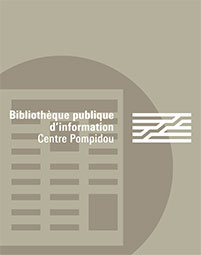Recherche simple :
- Sujet : politique étrangère
Documents en rayon : 1148
par Badie, Bertrand
CNRS éditions ; Impr. Nouvelle Imprimerie Laballery
2020 -
-
Disponible - 327 BAD
Niveau 2 - Politique
Résumé : L'auteur montre comment les relations intersociales ont remplacé, sur l'arène internationale, la juxtaposition d'Etats plus ou moins puissants, nécessitant de nouvelles diplomaties. L'éviction du politique se voit à travers la multiplication des manifestations populaires, la crise sanitaire mondiale engendrée par les millions d'interactions sociales ou les souffrances sociales sources de conflits. ©Electre 2020
par Struye de Swielande, Tanguy (1973-....) ; Rosoux, Valérie-Barbara ; De Wilde d'Estmael, Tanguy
Peter Lang
2021 -
-
Disponible - 327 POL
Niveau 2 - Politique
Résumé : Une analyse des processus liés à la conception et à la mise en oeuvre de la politique étrangère des Etats dans laquelle sont soulignés les éléments de permanence et les facteurs de changement qui l'impactent. Les auteurs passent en revue les déterminants, les instruments et la conduite de la politique étrangère élaborée par des Etats spécifiques ainsi que la manière de l'interpréter. ©Electre 2021
par Friedman, Max Paul
Cambridge University Press
2012
-
Disponible - 973-35 FRI
Niveau 2 - Histoire
par Beaulière, Arnousse (1974-....)
les Points sur les i éd.
2014 -
-
Disponible - 300.75(44) BEA
Niveau 2 - Sociologie, démographie
Résumé : Une réflexion autour de la crise vécue par la France et l'Europe depuis 2008 et de ses conséquences sur le discours autour de l'immigration. Constatant que l'immigré et l'étranger deviennent les boucs émissaires du débat public, l'auteur préconise un changement de politique qui dépasserait les clivages habituels et permettrait de réduire le malaise lié aux frustrations identitaires.
Résumé : De nombreux chercheurs (philosophes, historiens, juristes, physiciens, économistes, etc.), décrivent le monde actuel, devenu opaque et hostile, au vu des conflits qui le peuplent. Monde d'exception, selon eux, c'est la 1re fois que se conjuguent au niveau planétaire de telles distorsions : amélioration de la santé publique et pandémies, accroissement des richesses et paupérisation, etc.
par Steger, Manfred B. (1961-....)
Oxford University Press
2023 -
-
Disponible - 327 STE
Niveau 2 - Politique
Résumé : We live today in an interconnected world in which ordinary people can became instant online celebrities to millions of fans thousands of miles away, in which religious leaders can influence billions globally, in which humans are altering the climate and environment, in which new infectious diseases spread across continents at lightning speed, and in which complex social forces are increasingly impacted by digital technology. This is globalization. In the sixth edition of his bestselling Very Short Introduction, Manfred B. Steger offers concise definitions of pertinent key terms and concepts. He provides an accessible overview of the long history of globalization followed by an examination of its major dimensions: economic, political, cultural, ideological, and ecological. He also engages the hotly contested question of whether it is, ultimately, a good or a bad thing. From climate change to the COVID-19 pandemic, resurgent nationalism to global social media, trade wars to China's growing global profile, Russia's expansionism to renewed fears of nuclear conflicts, he explores today's unprecedented levels of planetary integration and disruption. - Note de l'éditeur
par Okunev, Igor ; Bisson, Bruno
Peter Lang
2023
-
Disponible - 913.6 OKU
Niveau 2 - Géographie, urbanisme
par Droz, Jacques (1909-1998)
Dalloz
2005
-
Disponible - 930.3 DRO
Niveau 2 - Histoire
par Zakaria, Fareed
Norton, W. W. & Company, Inc.
2024 -
-
Indisponible : En commande
Résumé : The CNN host and best-selling author explores the revolutions—past and present—that define the polarized and unstable age in which we live. Populist rage, ideological fracture, economic and technological shocks, war, and an international system studded with catastrophic risk—the early decades of the twenty-first century may be the most revolutionary period in modern history. But it is not the first. Humans have lived, and thrived, through more than one great realignment. What are these revolutions, and how can they help us to understand our fraught world? In this major work, Fareed Zakaria masterfully investigates the eras and movements that have shaken norms while shaping the modern world. Three such periods hold profound lessons for today. First, in the seventeenth-century Netherlands, a fascinating series of transformations made that tiny land the richest in the world—and created politics as we know it today. Next, the French Revolution, an explosive era that devoured its ideological children and left a bloody legacy that haunts us today. Finally, the mother of all revolutions, the Industrial Revolution, which catapulted Great Britain and the US to global dominance and created the modern world. Alongside these paradigm-shifting historical events, Zakaria probes four present-day revolutions: globalization, technology, identity, and geopolitics. For all their benefits, the globalization and technology revolutions have produced profound disruptions and pervasive anxiety and our identity. And increasingly, identity is the battlefield on which the twenty-first century’s polarized politics are fought. All this is set against a geopolitical revolution as great as the one that catapulted the United States to world power in the late nineteenth century. Now we are entering a world in which the US is no longer the dominant power. As we find ourselves at the nexus of four seismic revolutions, we can easily imagine a dark future. But Zakaria proves that pessimism is premature. If we act wisely, the liberal international order can be revived and populism relegated to the ash heap of history. As few public intellectuals can, Zakaria combines intellectual range, deep historical insight, and uncanny prescience to once again reframe and illuminate our turbulent present. His bold, compelling arguments make this book essential reading in our age of revolutions. - Note de l'éditeur

 Les bibliothèques de la ville de Paris
Les bibliothèques de la ville de Paris
 Les bibliothèques universitaires
Les bibliothèques universitaires
 La BnF
La BnF
 L'encyclopédie Wikipédia
L'encyclopédie Wikipédia
 L'Encyclopædia Universalis
L'Encyclopædia Universalis
 La bibliothèque du film
La bibliothèque du film
 La médiathèque de la Philharmonie de Paris
La médiathèque de la Philharmonie de Paris














